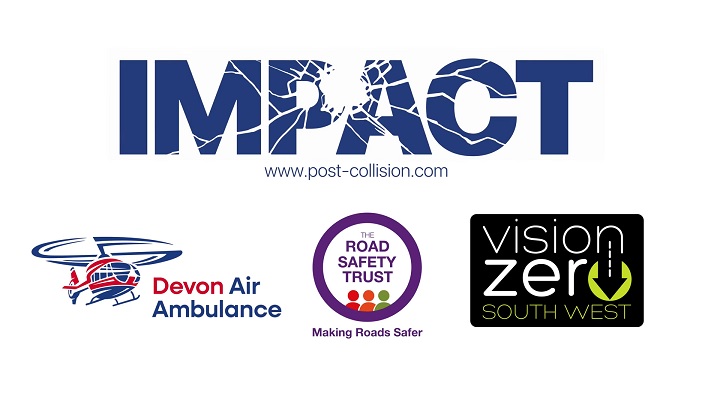
IMPACT, the Centre for Post-Collision Research, has launched a nationwide Priority Setting Partnership (PSP) as it steps up efforts to save lives and support recovery once a collision has occurred.
A PSP is a structured process that brings together people with real-world experience, whether professional, personal, or both, to decide what the most important unanswered questions are for future research.
It is designed to ensure that research priorities reflect what matters most to those who deliver care, support recovery, and are directly affected by collisions.
In other words, instead of researchers working in isolation, this PSP aims to put the power in the hands of the road safety and trauma community. That includes paramedics, emergency responders, fire and rescue crews, police officers, rehabilitation professionals, crash survivors and bereaved families.
As part of this work, IMPACT has launched a new survey, open to anyone with experience or insight into what happens after a road traffic collision. That includes:
- Emergency responders (paramedics, technicians, fire and rescue, police)
- Hospital-based clinicians and rehabilitation staff
- Road safety professionals and campaigners
- Crash survivors and their families
- Bystanders who have helped at the scene
- Community first aiders and volunteers
Once the survey closes, all submissions will be reviewed, grouped into themes, and checked against existing evidence. From there, IMPACT will hold a national consensus workshop in November 2025 to identify the top research priorities.
This final list will guide researchers and funders towards the areas where research is most urgently needed.
Professor Tim Nutbeam, on behalf of the Road Injury PSP Steering Group, said: “At IMPACT, the Centre for Post-Collision Research, we’re asking a simple but urgent question: are we doing everything we can to save lives and support recovery once a crash has occurred?
“We believe the answer is no. The response after a collision—whether that’s a bystander calling for help, a fire crew performing a rapid extrication, or a paramedic administering life-saving treatment—can be the difference between life and death. But this post-collision care pathway is full of unanswered questions. Which interventions work best? Where are the gaps? What should we be researching to improve outcomes?
“To answer these questions, we’ve launched a nationwide PSP, and we want your help.”
Framing the PSP: The Road Injury Chain of Survival
The scope of the PSP is based on a framework called the Road Injury Chain of Survival.

Inspired by the successful model used in cardiac arrest care, this chain breaks post-collision care into five key links:
- Early Recognition and Call for Help – quickly spotting serious injury and alerting emergency services
- Early Rescue – safe and effective extrication from vehicles or entrapments
- Early Initial Care – delivering lifesaving interventions at the scene
- Early Transport – getting patients swiftly to the right hospital
- Early Hospital Care and Rehabilitation – quality care that supports recovery and reduces long-term harm
Earlier this year, Professor Nutbeam wrote an opinion piece for Road Safety GB, outlining how the concept could be the next game-changer in saving lives on UK roads.
The work of IMPACT already making a difference
Among the work carried out by IMPACT to date has included the EXIT project. The ground-breaking, award-winning, project has revolutionised the approach emergency services take when responding to motor vehicle collisions, to reduce both deaths and disabilities.
The research studied the effect of extrication techniques applied to casualties following road traffic collisions.
It found that the ‘gold standard’ for extrication used since the 1960s – in which patients could remain in the vehicles for on average 30 minutes as slow, careful movements were used to avoid potential spinal injuries – was increasing the rate of death and injury.
Their research recommendation, that self-extrication should be delivered wherever possible with the extrication goal of minimising entrapment time, has now been adopted by emergency services in the UK and further afield.
A second, named Bystander, aims to decrease the morbidity and mortality associated with road trauma by rigorously considering the role of the bystander, including professional bystanders, in the post-collision phase of care.
Both projects have been funded by The Road Safety Trust.
Comment on this story